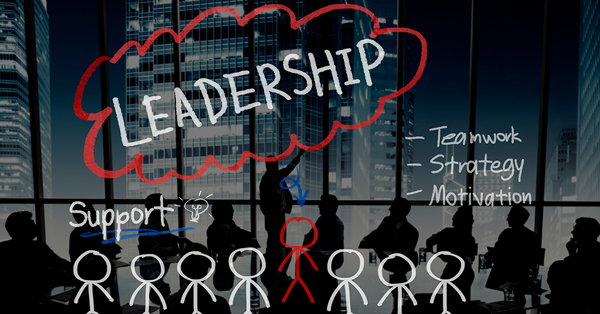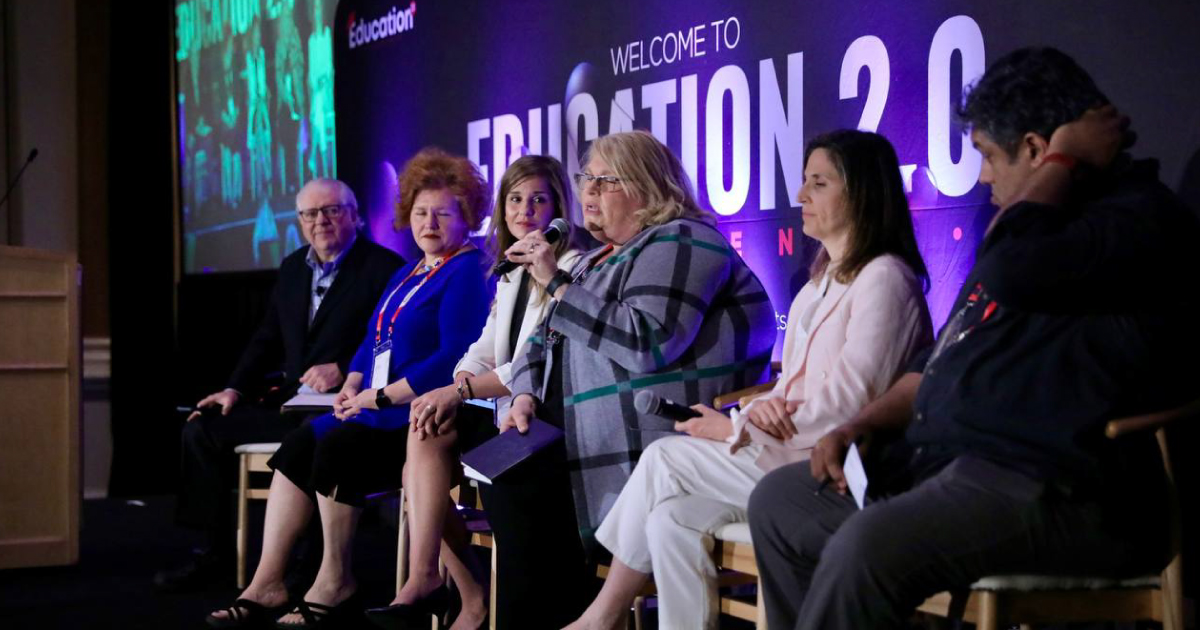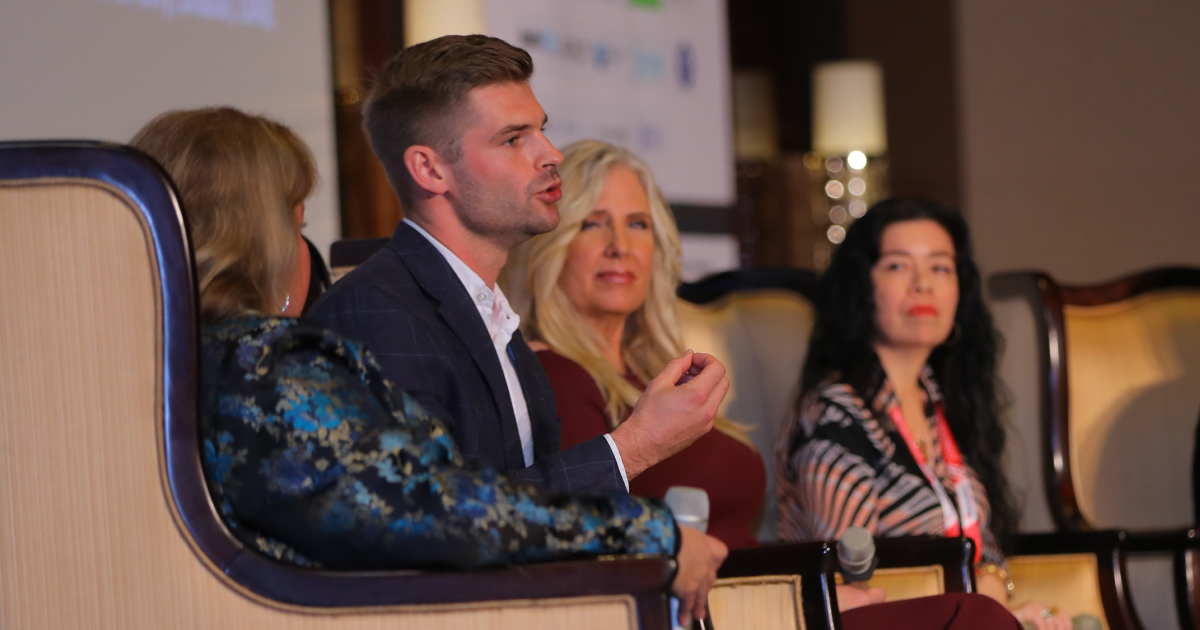
Embracing Change: Unlearning Old Habits For New Leadership Success
Posted on : August 16, 2023

In the dynamic landscape of leadership, the age-old saying, "Old habits die hard," has taken on a new meaning. In an era marked by rapid transformations, clinging to outdated approaches can hinder progress. The key lies in unlearning—the deliberate act of letting go of ingrained habits and mindsets that no longer serve us.
Unlearning isn't about erasing the past, but rather about making room for fresh insights and adopting evolving leadership strategies. Picture yourself as a traveler embarking on a journey. Would you carry along heavy baggage that impedes your movement? In the same way, leaders must shed the weight of obsolete practices to navigate the uncharted terrains of modern challenges.
This blog uncovers the essence of unlearning as a pathway to success. It delves into aspects of leadership success shared at global education conferences, like Education 2.0 Conference, and shares how shedding the shackles of conventional wisdom allows for the embracement of novel leadership paradigms.
Recognizing The Need For Unlearning
Change is the only constant, and the world of leadership is no exception. As we sail through the ever-evolving tides of business, it becomes crucial to pause and ponder: are our tried-and-true leadership habits still steering us in the right direction? Here's a reality check that sheds light on the need to unlearn – a key topic of the 2024 agenda at renowned education events in Dubai:
- Fast-Paced Transformations
The business landscape is morphing rapidly due to technological advancements, market shifts, and changing consumer expectations. Habits that once brought success might now be stifling progress.
- Stagnation Stifles Innovation
Holding onto outdated practices can stifle innovation and hinder adaptability. Consider this: only 23% of companies surveyed in a McKinsey study felt they were excellent at adapting to change.
- Learning From Failure
Recognizing the need to unlearn stems from understanding past failures.Experts at global education conferences share an interesting analogy towards this. Kodak's reluctance to adapt to digital photography serves as a stark reminder. By unlearning old practices, we open doors to lessons learned from these stories.
- Flexible Work Environments
With remote work and flexible arrangements becoming the norm, leadership approaches must adapt. A survey by Upwork reported that 41.8% of the American workforce was remote in 2020.
- Generational Diversity
As different generations coexist in the workplace, leaders must adjust their methods to resonate with each group. For instance, millennials value a collaborative and inclusive leadership style. This is a much-anticipated topic of discussion at 2024’s education conferences in Vegas.
In essence, recognizing the need for unlearning involves understanding that the strategies that brought us here might not take us there. It's about embracing the idea that our success hinges on our ability to adapt and evolve. The journey of unlearning starts with acknowledging that change is both a necessity and an opportunity, setting the stage for the transformational leadership approaches that follow.

Shedding Ineffective Habits: A Path To Growth
Imagine a garden choked with weeds—no matter how vibrant the flowers, they struggle to flourish amidst the unwanted. Similarly, in the realm of leadership, shedding ineffective habits is the essential step towards fostering growth and progress. Here are some insights on the same from experts at global education conferences.
- The Habit Loop
Habits are like well-worn paths in our minds. Over time, they become automatic, often overshadowing our decision-making. Charles Duhigg's research suggests that habits operate through a loop of cue, routine, and reward.
- Comfort Zones Versus Growth
Ineffective habits often stem from comfort zones, hindering personal and professional growth. Stepping out of these zones is essential for adapting to changing environments.
- Neuroplasticity
Our brains possess remarkable plasticity, allowing us to rewire neural pathways through new experiences. This ability to unlearn and create new habits is pivotal for leadership development.
- Breaking The Chain
Leaders should assess their habits and identify those impeding progress. A study shared at famous education events in Dubai, states that it takes an average of 66 days to form a new habit—replacing ineffective ones requires commitment.
- Embracing Discomfort
Growth seldom occurs in comfort. By shedding outdated habits, leaders pave the way for innovation and resilience. A PwC survey revealed that 61% of CEOs consider creativity as a top leadership skill. In 2024, experts at global education conferences are likely to focus on this aspect of education as the key factor of leadership success.
- Role Modeling
As leaders discard ineffective habits, their teams are inspired to do the same. Leading by example fosters a culture of growth and continuous improvement.
Shedding ineffective habits is akin to clearing space for fresh shoots to thrive. It's about acknowledging that growth necessitates change, and old habits must yield to new strategies. By doing so, leaders not only create an environment conducive to their own success but also inspire those around them to embark on their growth journeys.

Navigating The Transition: Embracing Modern Leadership Approaches
As the tides of change sweep over the leadership landscape, adapting to modern approaches is not just a choice—it's a necessity. Experts at Education 2.0 Conference, one of 2024’s highly anticipated education conferences in Vegas, suggest ways in which leaders can effectively navigate this transition and embrace contemporary leadership strategies:
- Agile Leadership
In a world of uncertainty, agility is paramount. A McKinsey survey found that organizations with agile leaders were three times more likely to outperform their peers in terms of organizational health.
- Empowering Teams
Modern leadership emphasizes collaboration and empowerment. Studies show that empowered teams are 50% more likely to be engaged and show higher levels of performance.
- Emotional Intelligence
Empathy, self-awareness, and relationship-building are crucial traits for leaders. A study by TalentSmart found that emotional intelligence accounts for 58% of success in various jobs.
- Inclusivity
Embracing diversity isn't just a buzzword—it's a strategic advantage. Companies with diverse leadership teams are 45% more likely to improve market share.
- Digital Fluency
Technology is reshaping industries. Leaders who embrace digital fluency are better equipped to lead their teams through digital transformations and leverage emerging opportunities.
- Continuous Learning
Modern leaders understand that learning is a lifelong journey. In fact, 94% of employees are more likely to stay with companies that invest in their learning and development.
- Adaptive Communication
Communication styles must evolve to match the preferences of a multigenerational workforce. Leaders adept at adjusting their communication are more likely to foster engagement.
Embracing modern leadership approaches requires a willingness to learn, evolve, and challenge the status quo. It's a shift towards a leadership style that thrives on collaboration, innovation, and empathy, making leaders not just managers but catalysts for positive change. Global education conferences agree that by navigating this transition, leaders can harness the power of modern approaches to drive their teams and organizations towards success in a rapidly changing world.
Learning From Diverse Perspectives: Cultivating Inclusive Leadership
Imagine a puzzle with missing pieces—each piece brings a unique design, completing the whole picture. Similarly, in leadership, diverse perspectives are the missing pieces that foster innovation, creativity, and inclusivity. Here's how cultivating inclusive leadership enriches the tapestry of success:
- Fresh Insights
Diverse teams bring varied experiences and viewpoints. This diversity of thought sparks fresh insights that can lead to groundbreaking solutions. A study by Boston Consulting Group found that companies with diverse leadership teams had 19% higher revenue due to innovation.
- Expanded Empathy
Inclusive leaders understand and value differences, fostering empathy and strong team relationships. This leads to better collaboration, engagement, and overall team performance.
- Global Reach
In a connected world, understanding diverse cultures is crucial for global success. Inclusive leaders navigate cultural nuances effectively, expanding their organization's reach.
- Reduced Bias
Inclusive leadership challenges biases and stereotypes, creating a fairer and more respectful workplace. A survey by Deloitte revealed that inclusive leaders are 83% more likely to mitigate bias in decision-making.
- Talent Magnet
Organizations that prioritize inclusivity become magnets for top talent. A Glassdoor study found that 67% of job seekers consider workforce diversity an important factor when evaluating job offers.
- Innovation Boost
Inclusive cultures encourage employees to speak up without fear. Such environments incubate innovation as employees from diverse backgrounds contribute unique ideas.
- Enhanced Problem-Solving
Diverse teams approach problems from multiple angles, leading to more comprehensive and effective solutions.
Cultivating inclusive leadership isn't just about representation; it's about harnessing the power of diverse minds to drive success. By actively seeking diverse perspectives, leaders tap into a wellspring of creativity and innovation, shaping a future where success is achieved not in spite of differences, but because of them.
Bottom Line
The ability to unlearn old habits and embrace change is the compass guiding us towards new horizons of success. As we bid adieu to outdated practices, we pave the way for innovative strategies, diverse perspectives, and continuous growth.
This journey isn't solitary; it thrives in a community of like-minded learners. At the Education 2.0 Conference, 2024, one of the leading education conferences in Vegas, leaders unite to share, learn, and shape the future of education.










